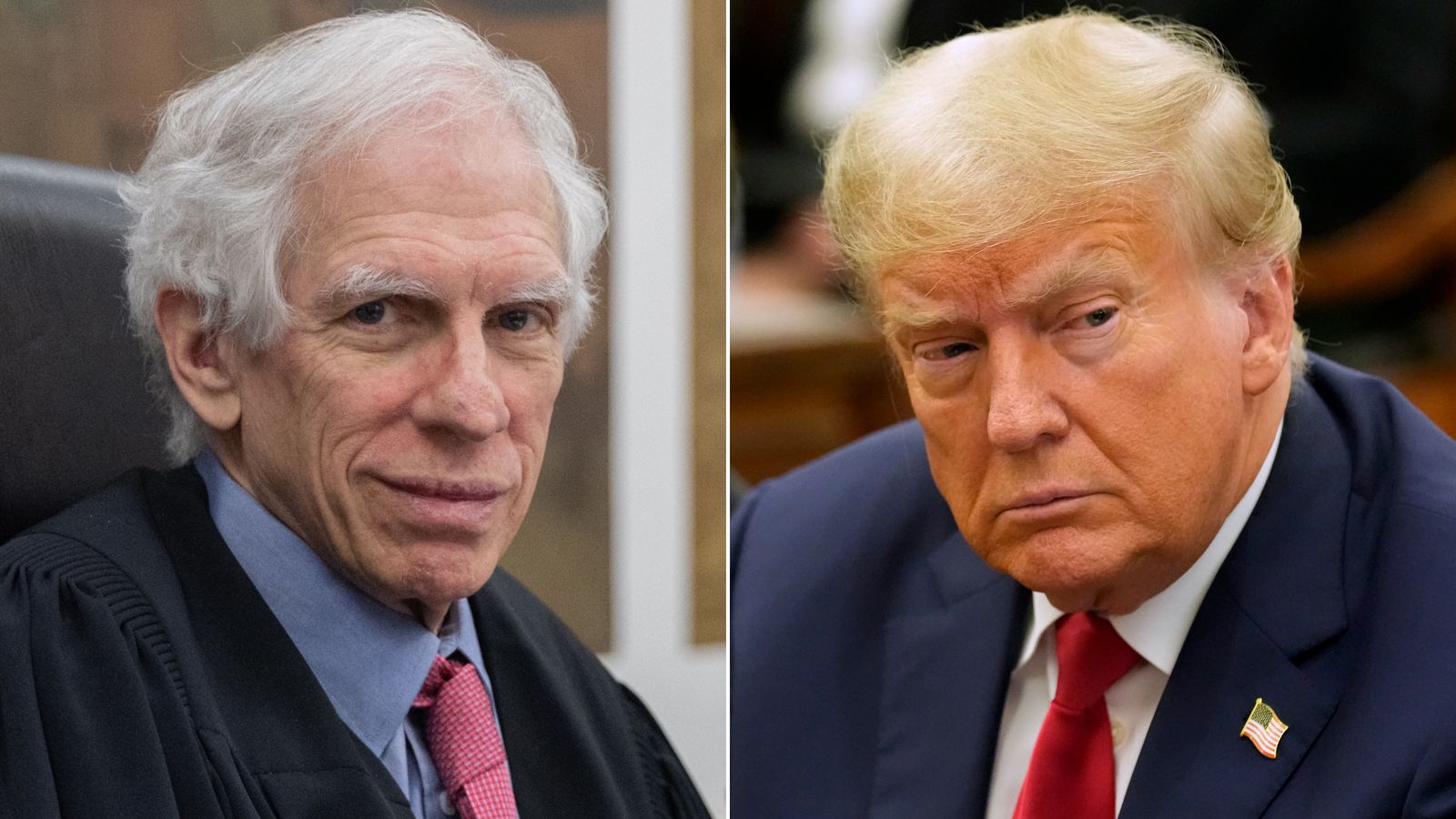Satire: Appeals Court’s Sharp Rebuke of Trump Legal Argument Sends Shockwaves Through Washington
WASHINGTON — A federal appeals panel issued a decisive rejection of former President Donald J. Trump’s latest legal appeal on Thursday, delivering a sharply worded opinion that legal experts immediately described as one of the most direct judicial rebukes he has faced in years. The ruling—unusually pointed in tone—left advisers scrambling for a coordinated response, even as political allies attempted to downplay the implications.
In a 38-page opinion, the three-judge panel found that Trump’s motion, which sought to halt proceedings in a related civil matter, “lacked substantive grounding in constitutional doctrine” and failed to meet the threshold for emergency relief. While courts often use restrained language when denying procedural requests, the panel’s framing suggested that the underlying argument was, in its view, fundamentally flawed.
“The appellant presents no legal basis for the extraordinary relief requested,” the judges wrote. “The court cannot—and will not—override established precedent on the basis of conjecture or political urgency.”
The language immediately attracted attention in legal circles. “This was a sophisticated but unmistakable judicial takedown,” said Marlon Eng, a professor of federal procedure at the University of Chicago. “The panel is essentially saying: enough.”
A Rare Judicial Tone
Although Trump has faced numerous setbacks across various courtrooms over the past several years, few decisions have employed language this unsubtle. Judges typically avoid commentary that could be construed as political. But Thursday’s ruling emphasized “misapplication of precedent,” “mischaracterization of statutory boundaries,” and “a striking absence of factual grounding.”
The unusual candor indicated, several analysts said, a growing frustration among the federal judiciary with attempts to slow-walk or obstruct proceedings through expansive interpretations of executive immunity and procedural privilege.
“This was not just a denial—it was a signal,” said Andrea Lopez, a former senior clerk for the D.C. Circuit. “Courts are increasingly unwilling to entertain arguments that deviate from established constitutional limits.”
Inside Trump’s Legal Team: Scramble and Frustration
According to two advisers familiar with the immediate aftermath, the ruling triggered a flurry of calls within Trump’s legal orbit. Some lawyers urged a rapid appeal to the Supreme Court. Others, however, expressed concern that the Court might decline to intervene, which would leave the appeals panel’s unusually sharp language standing uncontested.
One adviser, speaking anonymously, said the tone of the ruling “set off alarms,” adding: “A simple denial is manageable. A written repudiation like this creates narrative momentum.”
Trump’s political advisers, meanwhile, moved quickly to frame the ruling as politically motivated. In a brief statement, a campaign spokesman called the decision “misguided” and accused the judiciary of “injecting partisanship where neutrality is required.” No specifics regarding the legal deficiencies identified by the court were addressed.
On Capitol Hill: Quiet Concern and Predictable Division
The ruling reverberated through Washington within hours. Democrats pointed to the decision as a reaffirmation of the independence of the federal judiciary. “This shows that institutions can still hold,” said Senator Chris Murphy of Connecticut. “No one is insulated from legal scrutiny.”
Republicans responded in varied tones. Some, such as Senator Rick Scott, echoed Trump’s criticism, accusing the court of “judicial activism.” Others took a more cautious approach. “We should read the opinion carefully before making sweeping claims,” said Senator John Thune, the minority whip. “Judicial independence is critical, regardless of political outcomes.”
Analysts noted that the muted response from some senior Republicans reflected a growing awareness of political fatigue surrounding Trump’s legal battles. “There is less appetite for reflexive defense,” said Meredith Shaw, a political scientist at Stanford University. “This ruling may sharpen that divide.”
Digital Aftershocks and Public Perception
Within hours of the ruling, hashtags referencing the decision trended across X and TikTok, with clips of legal commentators breaking down the court’s language circulating widely. A number of conservative influencers criticized the judiciary, while liberal accounts characterized the opinion as long overdue.
Pollsters cautioned against drawing conclusions from early digital sentiment. “Online reactions tend to exaggerate extremes,” said Daniel Reeves of the Brookings Institution. “The long-term impact will depend on how the ruling affects broader legal timelines.”
Still, the sheer speed at which the decision spread online underscored how legal developments involving the former president continue to dominate political discourse. Cable networks shifted evening programming to extended analysis, further amplifying the moment.
What Happens Next
Trump’s legal team is expected to seek emergency review, though timelines remain uncertain. The Supreme Court could decline to intervene, particularly given the ruling’s procedural posture. If so, proceedings in the lower court would resume, potentially accelerating related filings and hearings.
For now, the appeals court’s opinion stands as a potent reminder of the legal obstacles confronting the former president. And while Trump retains a powerful grip on parts of the Republican electorate, Thursday’s decision inserted an unmistakable note of judicial skepticism into an already complex landscape.
As Eng, the Chicago law professor, put it: “Courts rarely raise their voices. When they do, it’s because they believe the law—and the moment—require it.”





